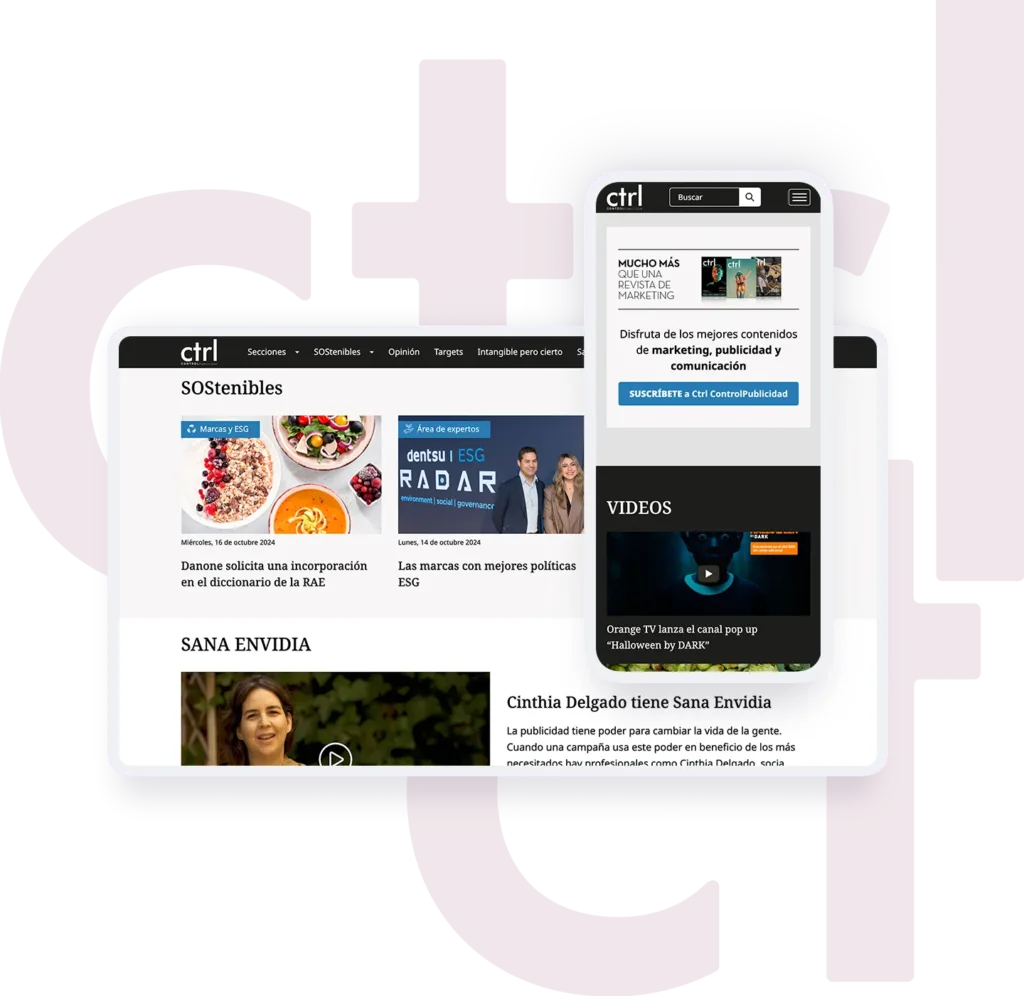Information Overload on Professional Services Websites: Striking the Right Balance
Does your website leave visitors feeling overwhelmed or frustrated? If so, you might be dealing with a common issue known as information overload.

Let’s dive in to understand what information overload is, how it impacts your website, and—most importantly—how to fix it.
In this article:
What is Information Overload?
Simply put, information overload occurs when users are bombarded with more information than they can effectively process. This can lead to confusion, poor decision-making, and a frustrating user experience. Imagine landing on a website and not knowing where to start—chances are, you’ll leave within seconds.
But why should this matter to professional services websites? Information overload not only harms user experience but also directly impacts key metrics like bounce rate, conversions, and return visits. In this article, we’ll explore the impact of information overload on websites and offer actionable tips for creating a user-friendly, engaging online experience.
The Effects of Information Overload on Websites
When information overload hits, visitors don’t stay. They don’t convert. And worst of all? They don’t come back. Here’s how information overload affects website performance:
- Lower Time on Site: Visitors spend an average of just 5.59 seconds looking at a page. Too much content? They’ll leave faster.
- Higher Bounce Rates: A staggering 38% of users leave a website if the content or design feels cluttered. Want help refining your layout? Check out our web design services.
- Fewer Conversions: Around 70% of B2B websites lack a clear call-to-action, often due to crowded design or excessive content, which can drastically reduce conversions.
These metrics demonstrate the real-world consequences of overloading your visitors with too much information at once.
Common Pitfalls of Information Overload on Professional Websites

Your website may be falling into these common traps of information overload:
1. Cluttered Homepages
Does your homepage feel like a jumble of multiple sliders, endless lists of services, and too many call-to-action buttons? This can overwhelm visitors right from the start. A cluttered homepage leads to confusion, not conversion.
Solution: Simplify your homepage to focus on the most important message. Use a clean layout and prioritise essential calls-to-action. This ensures your visitors immediately know where to go next.
2. Complex Navigation Menus
Multi-level dropdowns and excessive links in your navigation menu can make it difficult for users to find what they’re looking for. Overcomplicated menus frustrate visitors and can lead to a poor user experience.
Solution: Keep navigation simple and intuitive. Limit the number of items in your menu and organise them logically. A well-structured menu helps users easily navigate your site.
3. Dense, Text-Heavy Pages
A “wall of text” can scare off readers. Without sufficient white space or headings, your content becomes harder to scan, leaving users frustrated and more likely to abandon your site.
Solution: Break up long paragraphs with headings, subheadings, bullet points, and ample white space. Make your content scannable and digestible to keep users engaged.
4. Resource Libraries with Poor Organisation
A resource library filled with white papers, blogs, and case studies is valuable—but only if users can easily find what they need. Without proper categorisation, your resources become difficult to navigate, diminishing their impact.
Solution: Categorise and tag your resources clearly. Implement a search feature that allows users to filter content by topic or type, making it easier for them to find relevant material.
5. Overly Lengthy Forms
Forms that are too long or require too much information can deter users from completing them. The more fields you ask them to fill out, the more likely they are to abandon the form midway.
Solution: Simplify forms by only asking for essential information. Consider breaking longer forms into multiple steps to reduce friction and make the process feel less overwhelming.
How to Manage Information Overload on Your Website
Ready to tackle information overload? Here’s how to transform your website into an organised, user-friendly experience:
1. Progressive Disclosure
Instead of overwhelming visitors with all the information at once, use progressive disclosure to reveal content gradually. Allow users to click or scroll for more details, keeping the interface clean and focused.
Example: Instead of displaying a long list of services on the homepage, show a brief overview with the option to learn more about each service when clicked.
2. Data Visualisation
Humans process visuals 60,000 times faster than text, so converting complex data into infographics, charts, or interactive content can greatly enhance user comprehension.
Example: Instead of long paragraphs of statistical data, use an infographic or chart to represent the same information. It’s faster to understand and more engaging for the user.
3. Responsive Design

With over half of global web traffic coming from mobile devices, having a responsive design is no longer optional. A mobile-friendly website ensures users can easily navigate your site, whether on a desktop, tablet, or smartphone.
Example: A well-designed responsive layout adjusts content, images, and navigation for an optimal experience across all devices.
4. Personalisation through AI
Use artificial intelligence (AI) to personalise your website experience. By tailoring content to users’ interests and previous interactions, you can keep visitors engaged and increase conversion rates.
Example: Show relevant case studies or blog posts based on a user’s browsing behaviour or location. Personalised content makes the experience feel more tailored and relevant to each visitor.
5. Clear Information Architecture
Effective information architecture (IA) is essential for keeping your website organised. A logical structure helps visitors find information quickly and reduces cognitive overload. Improving IA can increase conversion rates by up to 219%.
Example: Organise your content into clear categories such as Services, About Us, Testimonials, and Blog. Use breadcrumbs to help users track their location on the site.
Best Practices to Avoid Information Overload
Here are some best practices to ensure your website remains clean, organised, and user-friendly:
- Continuous Improvement: Use analytics to track user behaviour. Adjust based on what’s working and what isn’t.
- Simplify Navigation: Avoid multi-level dropdowns and ensure menus are consistent and easy to navigate.
- Create a Clear Content Hierarchy: Prioritise your most important content. Use headers, subheadings, and bullet points for easier scanning.
- Consistent Formatting: Consistency in colours, fonts, and layout creates a familiar experience for users.
- Intuitive Labels: Use clear, concise labels for categories and buttons to help users know exactly what to expect.
- Optimise for Mobile: Ensure your site is responsive and works well on all devices, especially smartphones.
Case Study: Singleton Law Firm’s Approach to Reducing Information Overload
In a competitive legal market, the Singleton Law Firm faced a challenge: their website was too cluttered, and potential clients were getting lost in a sea of information.
By streamlining their site’s design, improving navigation, and focusing on clear messaging, they managed to boost organic traffic by an impressive 1,600% year-over-year. This case study shows that even professional service websites can achieve remarkable results with the right digital strategy.
Final Thoughts: Achieving Clarity on Your Website
Reducing information overload isn’t about providing less content; it’s about presenting it in a clear, structured, and user-friendly way. By applying strategies like progressive disclosure, data visualisation, and intuitive navigation, you can create a website that delivers a better user experience and drives more conversions.
Ready to reduce information overload on your website?
Connect with us today to learn how our digital marketing services can help improve your online presence and website performance.
Agile is an independent Digital Marketing Agency headquartered in London, specialising in web design and search engine optimisation. Our proficiency is underscored by several HubSpot Certifications, and we take pride in being recognised as a 2023 Global Award Winner for SEO by Clutch. At the heart of our success lies a team that seamlessly navigates the intersection of technology and marketing, ensuring innovative and impactful solutions for our clients.
Related
Articles


